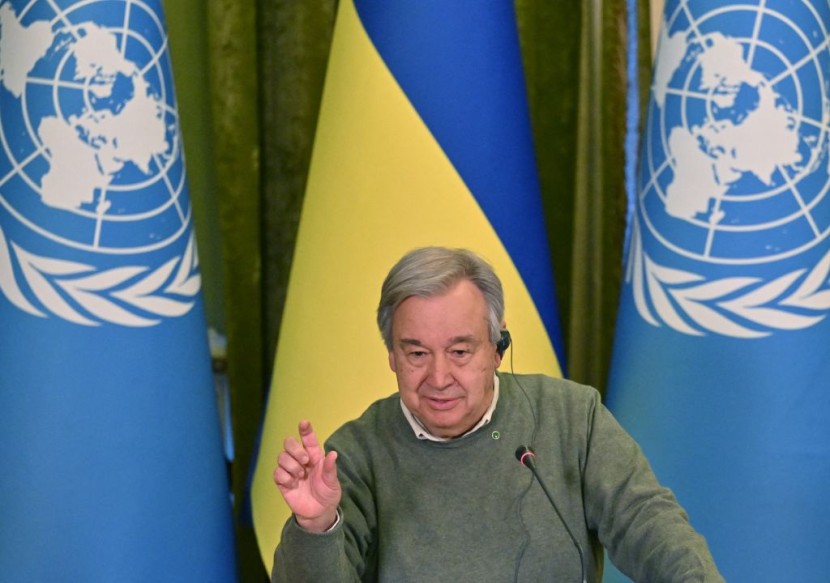
On Friday morning in Turkey, Ukraine and Russia struck a deal pledging to let millions of tons of essential food supplies to leave Ukraine's long-blocked southern ports. Since its full-scale invasion of Ukraine on February 24, Russia has shut the Black Sea ports, prompting claims from the United States and Europe that President Vladimir Putin has weaponized food.
As part of the agreement, which was mediated and co-signed by the Turkish government and the United Nations, Russian food and fertilizer that the Putin dictatorship claims it has been unable to ship because of sanctions against his nation imposed over the Ukraine war may also be exported.
Grain Exports Deal Signed Between Russia, Ukraine
The deal, which was signed on Friday in Istanbul's Dolmabahce Palace, does not directly address the ongoing conflict in Ukraine, but it is anticipated that by increasing supply and reducing the rising prices of essential commodities throughout the world, it would help ease the current global food crisis.
According to CBS News, the agreement asks for the creation of secure shipping lanes for grain to travel through the Black Sea's heavily mined seas. It includes pledges from Russia and Ukraine that they won't strike any ships recognized as being a part of the program as they sail through the maritime lanes and that they'll enable Turkey to inspect the ships.
As a result of the conflict in Ukraine, the World Food Programme (WFP) believes that 47 million people are now experiencing severe hunger, and Western authorities have accused Russia of using food as a weapon during its invasion.
The agreement will also permit unrestricted access for Russian fertilizers to international markets. Fertilizers, which are essential to boosting food production and which Russia is a significant producer of, have become increasingly expensive since the invasion, CNN reported. The agreement, according to Turkish President Recep Tayyip Erdogan, will alleviate "millions of people of this risk of famine."
Global Grain Exports Affected With Russia-Ukraine War
In accordance with the agreement reached on Friday, grain ships would travel through a secure passageway in the Black Sea under the control of Ukrainian pilots in order to access international markets. They would then travel through the Bosphorus Strait, a crucial maritime route in northwest Turkey.
Russian, Ukrainian, and Turkish officials would examine ships before they arrived in Ukraine to make sure no weapons were being smuggled into that country. A Joint Coordination Centre (JCC), which will be set up right once in Istanbul and include representatives from Ukraine, Russia, and Turkey, will keep an eye on the ships.
Both parties have agreed that no one should attack any ships leaving those ports and entering the Black Sea from beyond their respective territorial waters. Russia and Ukraine both contribute significantly to global food supply. Typically, Ukraine, one of the world's major producers of bread, would export around 75 percent of the grain it produces. Nearly 90% of these exports, according to data from the European Commission, came from Black Sea ports in Ukraine and were transported by sea.
The war and its impact on grain exports therefore has major implications, particularly in the global South which relies heavily on them. Between disrupting Ukrainian agricultural production and blocking the export of products that remain, Russia's war in Ukraine could push 49 million people into famine or famine-like conditions, the United Nations warned last month.
A Joint Coordination Centre (JCC), which will be set up right once in Istanbul and include representatives from Ukraine, Russia, and Turkey, will keep an eye on the ships. Both parties have agreed that no one should attack any ships leaving those ports and entering the Black Sea from beyond their respective territorial waters.
Per Big News Network, Russia and Ukraine both contribute significantly to global food supply. Typically, Ukraine, one of the world's major producers of bread, would export around 75 percent of the grain it produces. Nearly 90% of these exports, according to data from the European Commission, came from Black Sea ports in Ukraine and were transported by sea.
Related Article: Vladimir Putin Announces Resume of Russian Gas in Key Pipeline, Warns Europe Deliveries Could Keep Dwindling
@YouTube
© 2026 HNGN, All rights reserved. Do not reproduce without permission.








